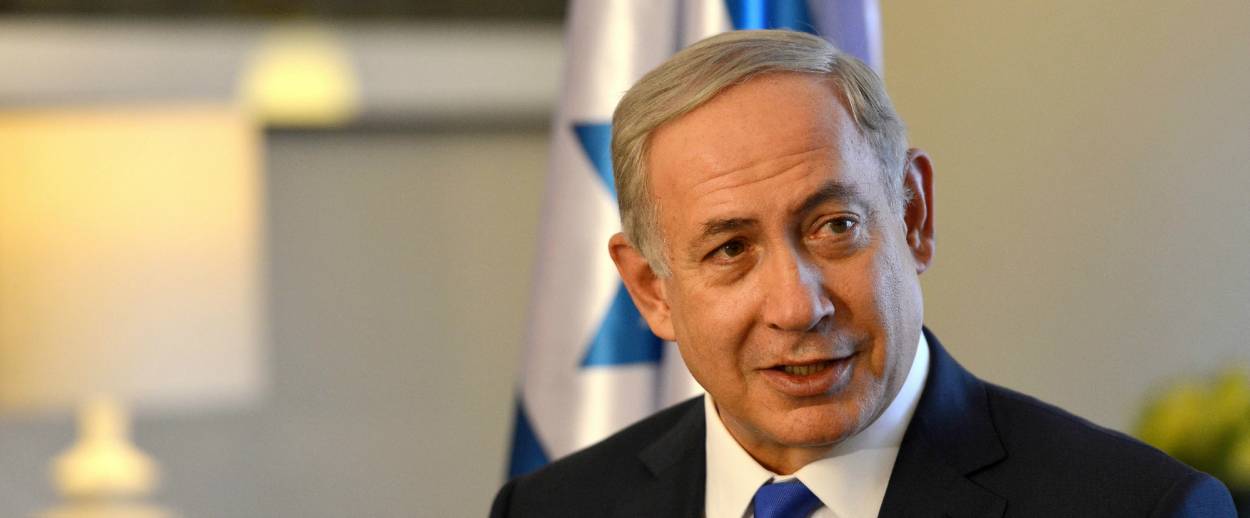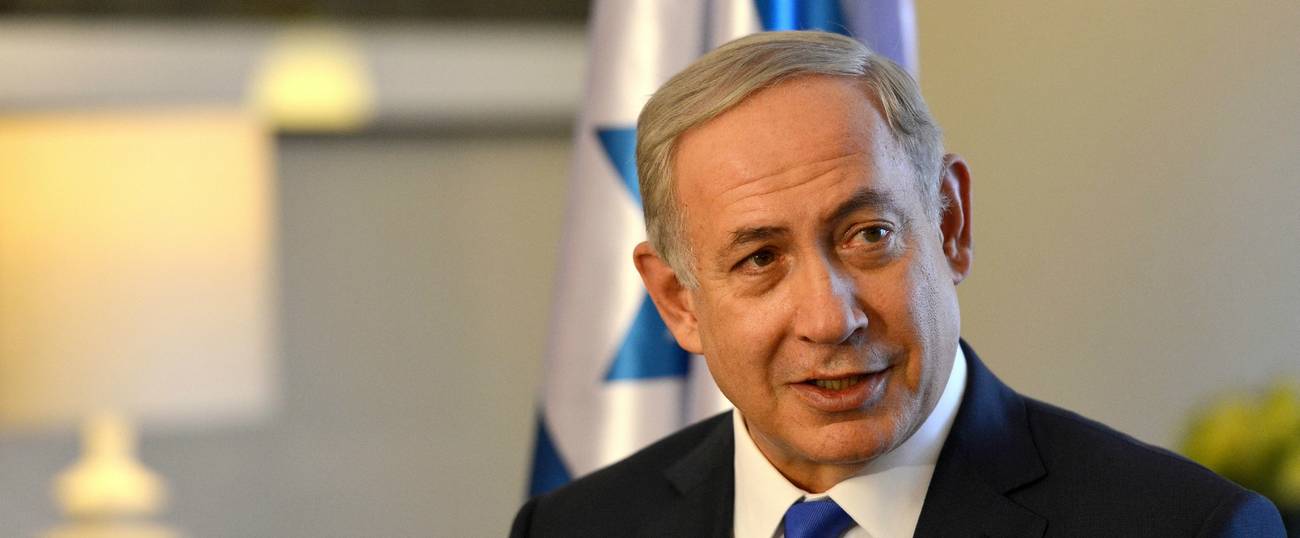Netanyahu Needs To Stop Making Unforced Errors
In an unbalanced playing field, Israel’s Prime Minister can ill afford to continue provoking unnecessary scandals




On Wednesday, Riyad Mansour, the official Palestinian representative at the United Nations, falsely accused Israel of stealing organs from the bodies of Palestinian terrorists. The claim echoed the anti-Semitic blood libel of the Middle Ages, which charged Jews with murdering gentile children to use their blood for Passover matzoh. But you won’t hear much about this egregious anti-Semitic outburst in the media. That’s because Israeli Prime Minister Benjamin Netanyahu has once again commandeered their coverage and made himself the story—and not in a good way.
Just hours after the U.N. incident, it was announced that Dr. Ran Baratz, a conservative Israeli academic, had been tapped as the country’s new director of public diplomacy. Reporters quickly dove into the past statements of this purported media maven, and what they found was not encouraging. On his Facebook page, Baratz had accused President Obama of expressing “modern anti-Semitism,” suggested Secretary of State John Kerry was not “a person whose mental age exceeds 12,” and openly mocked Israeli President Reuven Rivlin as “a marginal figure” who could be “sent in a paraglider” to Syria.
Coming on the eve of Netanyahu’s crucial visit to Washington, in which he aims to mend fences with the Obama administration and Democrats after the bruising Iran deal fight, Baratz’s statements were particularly embarrassing. Netanyahu quickly condemned them and suspended the appointment—though did not immediately spike it—while Baratz was forced to apologize.
More troubling than the episode itself, however, is that it appears to be part of a pattern. Of late, Netanyahu has repeatedly managed to make major unforced errors that have turned an unflattering spotlight on himself and his country. Most recently, the prime minister was forced to retract an incorrect claim that the former Palestinian Mufti of Jerusalem, Haj Amin al-Husseini, had not simply collaborated with Hitler, but actually gave the German leader the idea for the Final Solution itself. For days, the media was flush with stories of Bibi’s factual faux pas, at a time when innocent Israelis were being stabbed in the streets. It takes talent to take the undisputed fact that a venerated Palestinian leader supported Hitler and turn it into an anti-Israel storyline, but in his hyperbole, Netanyahu managed it.
Now, these damaging miscues don’t happen in a vacuum. There are people involved at every step of the process, from Netanyahu’s personal advisers to his speechwriters. Yet at no point did any of these individuals raise eyebrows at Baratz’s appointment, or Netanyahu’s Mufti remarks. This is because Netanyahu increasingly inhabits an ideological bubble of close allies and confidants, and few others, as the Times of Israel‘s Haviv Rettig Gur has reported. While Netanyahu is open to criticism from this small circle of trust, in practice, it largely includes the like-minded, who are unlikely to question him.
This state of affairs explains why Netanyahu made the disastrous decision to address Congress on the Iran deal. The prime minister’s words had essentially no chance of affecting the outcome of the deal, harmed U.S.-Israel relations, and ultimately served as an excellent pretext for the administration to rally Democrats behind their president and the accord. Had Netanyahu consulted many of Israel’s friends in America, from right to left, they would have told him as much. (Among others, pro-Israel stalwarts and former George W. Bush officials Dov Zakheim and Adam Garfinkle both advised against the speech after it was announced, as did neoconservative leading light Robert Kagan.) But instead, even Netanyahu’s own National Security Advisor was not consulted in the decision. As such, there was no one to push back on the idea until it was too late, and it was drawing fire even on FOX News.
To be sure, the international media is frequently unfair to Netanyahu and Israel, magnifying their mistakes, whether by obscuring violence against the Jewish state’s citizens or passing over the misdeeds of its adversaries, like the outrageous organ stealing claim. Netanyahu’s administration is also often held to a standard that others are not; no Obama officials were disciplined after they famously dubbed Bibi “chickenshit” and “Aspergery,” for instance. But the reality of these biases just underscores the need for Israeli leadership not to make unforced errors that feed into the slanted dynamic. If the playing field is tilted against you, you need to play much better, not worse, in order to succeed.
How can Netanyahu accomplish this? His political opponents would doubtless argue that only a change in leadership can right the ship. But even many of his allies recognize that something must be done. Given that new elections are not in the cards, here are three interim suggestions that both Bibi’s supporters and detractors should be able to embrace:
1. Netanyahu needs to fire or demote whoever ran the botched Baratz search. Anyone overseeing a job application process for a diplomat who doesn’t check the candidates’ social media profiles clearly doesn’t understand what the profession entails in today’s world.
2. More important than kicking people out, however, Netanyahu needs to bring people in. He should invite voices that disagree with him and his messaging into his inner circle, where they can challenge and correct his staff’s excesses and shatter their echo chamber. The danger of entrenched administrations, from Margaret Thatcher’s to Netanyahu’s, is that they become set in their own ideology, unable to recognize changing external realities. In-house critics would help prevent that, and make Israeli policy better.
3. Finally, when it comes to matters of public diplomacy, particularly in the United States, Netanyahu needs to talk with Israel’s allies on the ground before making key decisions that affect them. Both the current and past leadership of the Anti-Defamation League quickly came out against the Baratz public diplomacy appointment. It’s remarkable that they weren’t even consulted on the matter, given that the position’s purpose is to educate abroad. This oversight should not happen again.
Alternatively, Netanyahu can keep things as they are and continue muddling along. But if he does, these sorts of utterly unnecessary scandals will only proliferate, and the state of Israel’s standing will be the victim.
Yair Rosenberg is a senior writer at Tablet. Subscribe to his newsletter, listen to his music, and follow him on Twitter and Facebook.